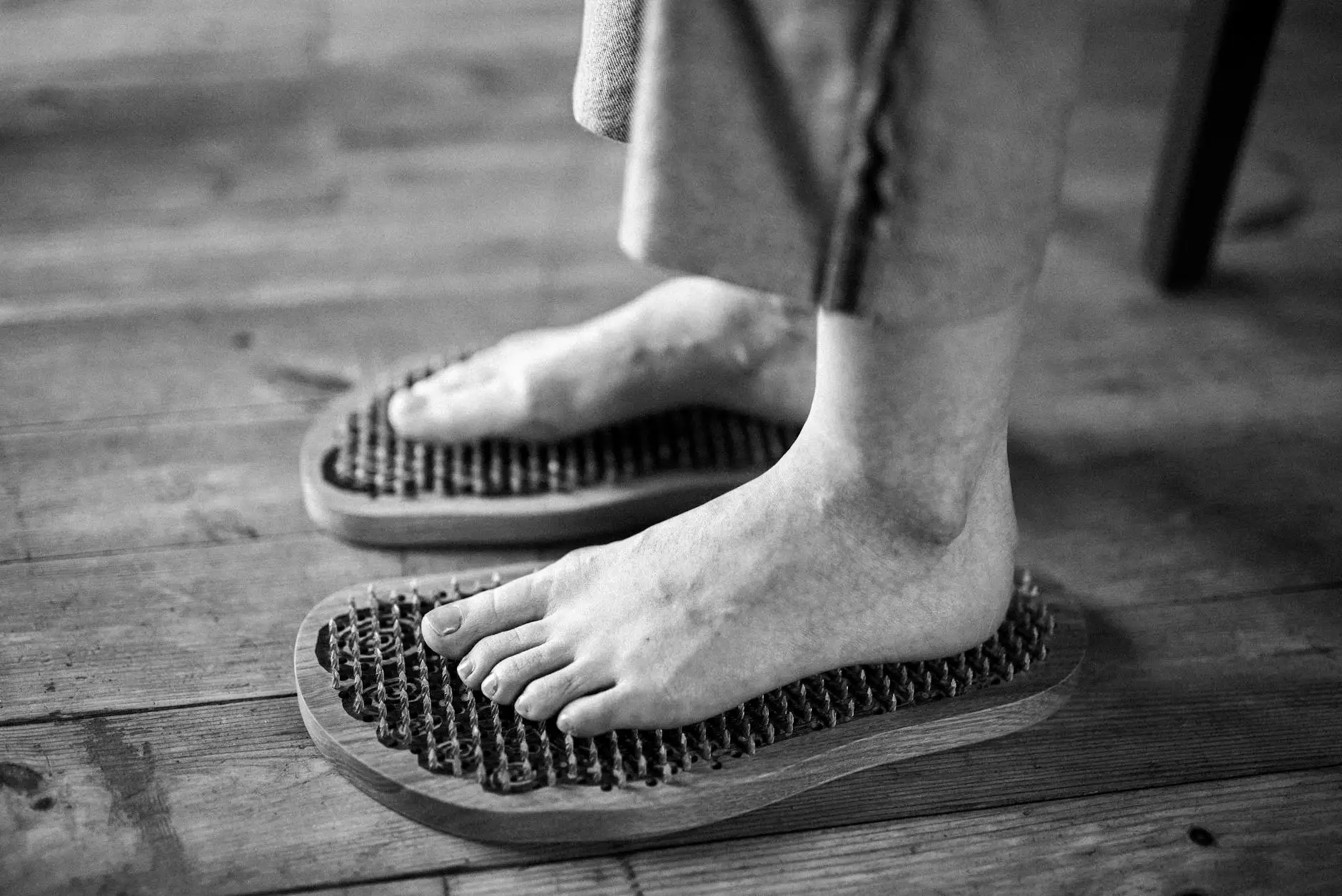The Foot Practice - Metatarsalgia: Causes, Symptoms, and Treatment

Introduction
Welcome to The Foot Practice, a leading podiatry clinic specializing in foot care services. In this article, we will explore the common foot condition known as metatarsalgia, including its causes, symptoms, and effective treatment options. Our team of experienced podiatrists is dedicated to providing comprehensive care to ensure your feet stay healthy and pain-free.
Understanding Metatarsalgia
Metatarsalgia refers to a condition characterized by pain and inflammation in the ball of the foot, specifically the metatarsal region. It commonly affects individuals who engage in activities that involve repetitive impact on the feet, such as running, jumping, or standing for extended periods. Metatarsalgia can also be caused by wearing ill-fitting shoes that provide insufficient support or cushioning.
Causes of Metatarsalgia
There are several factors that can contribute to the development of metatarsalgia. These include:
- High-impact activities: Engaging in sports or activities that involve intense impact on the feet, such as running or basketball, can increase the risk of metatarsalgia.
- Foot structure abnormalities: Certain foot structures, such as high arches or flat feet, can put excessive pressure on the metatarsals, leading to pain and discomfort.
- Improper footwear: Wearing shoes that do not provide adequate support, cushioning, or proper fit can contribute to the development of metatarsalgia.
- Overuse injuries: Repeated stress on the metatarsal bones from excessive activity, without proper rest and recovery, can result in metatarsalgia.
Symptoms of Metatarsalgia
Metatarsalgia can present with various symptoms, including:
- Pain in the ball of the foot, typically worsened by standing, walking, or running.
- Tingling or numbness in the toes.
- A feeling of having a pebble in your shoe.
- Localized inflammation or swelling.
- Difficulty with activities that involve pushing off the foot, such as climbing stairs or running.
Treatment Options
At The Foot Practice, we offer a variety of effective treatment options for metatarsalgia, tailored to meet your specific needs. Our experienced podiatrists will conduct a thorough evaluation to determine the underlying cause of your condition and develop a personalized treatment plan. Some common treatment approaches include:
1. Footwear Modification
Ensuring that you wear properly fitting shoes with adequate cushioning and support is essential in relieving metatarsalgia symptoms. Our podiatrists can recommend appropriate footwear options and provide custom orthotics if necessary.
2. Orthotic Devices
Custom orthotic devices can help redistribute pressure on the foot, reducing strain on the metatarsals. These devices are designed based on your foot's unique structure and can provide significant pain relief.
3. Physical Therapy
Our skilled physical therapists can guide you through exercises and stretches aimed at strengthening the foot muscles, improving flexibility, and reducing pain associated with metatarsalgia. They can also provide valuable advice on proper foot mechanics and body alignment.
4. Medications
In some cases, over-the-counter nonsteroidal anti-inflammatory drugs (NSAIDs) may be recommended to manage pain and inflammation associated with metatarsalgia. However, it is crucial to consult with our podiatrists before using any medication.
5. Rest and Ice
Resting the affected foot and applying ice packs can help reduce pain and inflammation. Our team can guide you on proper icing techniques and advise on the appropriate duration and frequency of rest.
Prevention Tips
Preventing metatarsalgia involves adopting proper foot care practices and taking necessary precautions. Here are some preventive measures you can consider:
- Choose footwear that provides adequate support, cushioning, and proper fit.
- Gradually increase the intensity and duration of physical activities to allow your feet to adjust.
- Maintain a healthy body weight to minimize pressure on the feet.
- Include regular foot exercises and stretches in your routine to enhance foot strength and flexibility.
- Seek professional guidance from our podiatrists for proper foot mechanics and body alignment.
Contact The Foot Practice for Comprehensive Foot Care
If you are experiencing symptoms of metatarsalgia or any other foot-related concerns, don't hesitate to reach out to our expert team at The Foot Practice. We are dedicated to providing exceptional podiatry services and foot care solutions to ensure your feet stay healthy and pain-free. Schedule an appointment with us today and take the first step towards better foot health!




